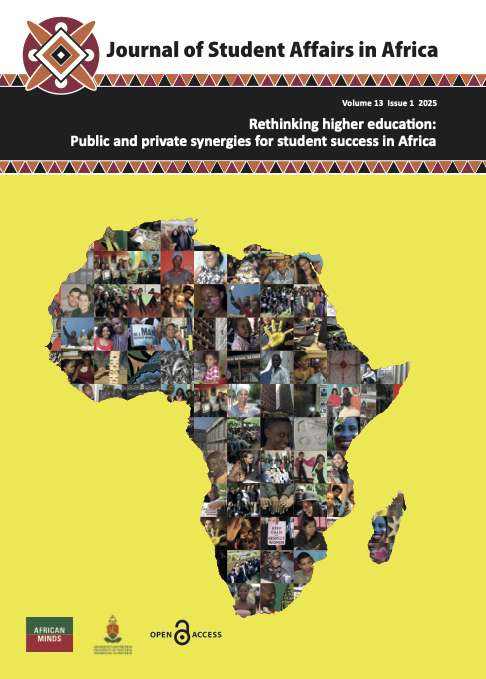Individual student support and counselling for undergraduate pharmacy students at an historically disadvantaged institution
DOI:
https://doi.org/10.24085/jsaa.v13i1.4347Keywords:
BPharm students, problem-based learning programme, “at-risk”, counselling/support, individual pass ratesAbstract
Many students who meet higher education admission standards struggle in their respective programmes because they lack the necessary skills and/or abilities to navigate complex institutions of higher education. This study aimed to determine individual counselling's role in pharmacy students' academic performance in a problem-based learning (PBL) programme at a South African University. Students identified as “at-risk” of failing were the focus, and the study was retrospective, cross-sectional and quantitative. This article presents possible individualised remedial measures that can be applied to reduce the attrition rate and stimulate success among a diverse student body in the BPharm programme. Early monitoring and evaluation of students “at-risk” of failing from across all year groups ensure the long-term success of activities and plans in a diverse atmosphere, effectiveness, efficiency, and accountability to the stakeholders.
Keywords: BPharm students, problem-based learning programme, “at-risk”, counselling/support, individual pass rates.
Downloads
Published
Issue
Section
License
Copyright (c) 2025 Lindi Angeline Mabope, Beverley Summers, Anna-Marie Wium, Johanna Meyer

This work is licensed under a Creative Commons Attribution-NonCommercial-ShareAlike 4.0 International License.
Authors who publish with this journal agree to the following terms:
Authors retain copyright and grant the journal right of first publication with the work simultaneously licensed under the Creative Commons Attribution Share-alike 4.0 International License that allows others to share the work with an acknowledgement of the work's authorship and initial publication in this journal.
Authors are able to enter into separate, additional contractual arrangements for the non-exclusive distribution of the journal's published version of the work (e.g., post it to an institutional repository or publish it in a book), with an acknowledgement of its initial publication in this journal.
Authors are permitted and encouraged to post their work online (e.g., in institutional repositories or on their website) prior to and during the submission process, as it can lead to productive exchanges, as well as earlier and greater citation of published work (See: The Effect of Open Access).


